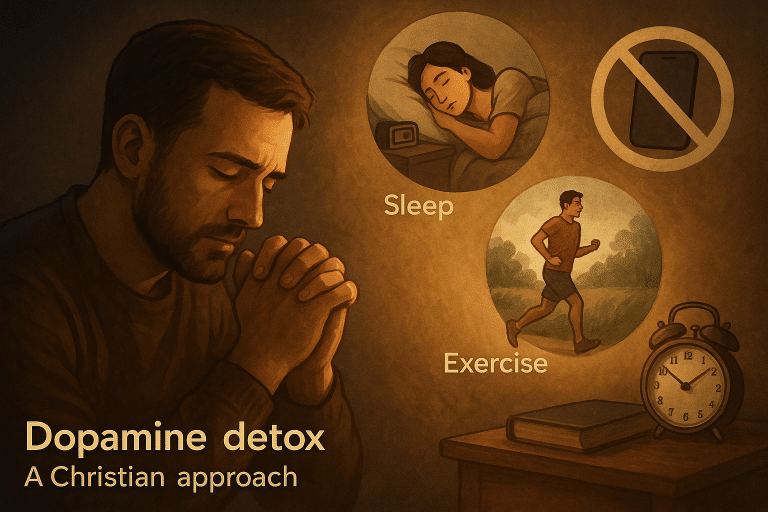Burnout Symptoms from Caregiving and What to Do – 7 Faith‑Based Fixes
Estimated reading time: 5 minutes
Introduction: Recognizing Burnout Symptoms from Caregiving and What to Do
Caregiving is a holy vocation, yet it can press body, mind and spirit past God‑given limits. Research from the Cleveland Clinic shows more than 60 % of family caregivers develop measurable burnout. If you regularly feel exhausted, detached or far from joy in Christ, these are classic burnout symptoms from caregiving. In this guide you will learn what to do—immediate “first‑aid,” long‑term strategies and faith‑anchored resources—to regain health while still serving your loved one.
Throughout each section you will see short transition cues such as however, meanwhile or therefore; they keep the flow clear and help your brain digest the material quickly.

Why Burnout Happens: Body, Mind & Spirit
Physically, chronic stress keeps the sympathetic nervous system stuck in “high gear,” elevating cortisol, disturbing sleep and raising blood pressure. A randomised trial confirmed that supportive interventions lowered both depression scores and systolic pressure in caregivers after 12 weeks, therefore proving biology responds to rest.
Mentally, compassion fatigue clouds thinking and fuels anxiety. Scripture recognises this reality; Elijah cried “I have had enough, LORD” (1 Ki 19:4) before God sent food and sleep. Likewise, Jesus told the disciples, “Come away…and rest” (Mk 6:31). Consequently, acknowledging limits is an act of obedience, not failure.
Spiritually, self‑sacrifice can mute prayer life until faith feels dry. Yet Hebrews 6:10 promises God “will not forget your work.” Moreover, practising Sabbath rhythms reconnects you to the Vine (Jn 15:5) so strength may flow again.
Because each facet affects the others, ignoring even one accelerates burnout symptoms from caregiving; hence holistic action is essential.
Immediate Steps: Caregiver Burnout Solutions When Burnout Strikes
1 ► Name it & pray. Say aloud, “Father, I am burned out.” Honesty invites grace (2 Co 12:9). Then ask one trusted friend to intercede.
2 ► Call your doctor. The Mayo Clinic warns untreated stress worsens chronic disease. Therefore schedule your own physical today—before another appointment for your loved one. Modern medicine is a gift (Jas 1:17) and does not contradict faith.
3 ► Accept help immediately. Text three relatives a specific request such as, “Could you sit with Mom Tuesday 2‑4 pm?” Doing so fulfils Galatians 6:2, because shared burdens lighten quickly.
4 ► Use a five‑minute reset. For example, practise a deep‑breathing prayer; inhale “Be still,” exhale “and know.” Research shows deliberate breathing lowers heart rate within 60 seconds.
Taken together, these actions provide rapid caregiver fatigue relief while you implement the longer plans below.
Long‑Term Strategies to Prevent Caregiver Burnout
- Schedule rhythmic respite. Reserve one full day off every week or month. The ARCH National Respite Network lists programs that subsidise relief care.
- Guard sleep, nutrition and movement. Eat colourful whole foods, walk 20 minutes daily and aim for 7 hours of rest. Accordingly, the body—God’s temple (1 Co 6:19)—recovers.
- Set loving boundaries. Jethro told Moses, “You cannot handle it alone” (Ex 18:18). Therefore delegate tasks and say graceful “no’s” when plates overflow.
- Nourish the soul. Start or join a 15‑minute worship habit. Consider this free Prayer‑for‑Anxiety guide to centre on Christ during caregiving breaks.
Apply each discipline consistently; consequently, resilience grows and burnout symptoms from caregiving and what to do becomes a testimony of renewal.

Case Study: Maria’s Journey from Exhaustion to Renewal
Maria, a 46‑year‑old believer caring for her husband with multiple sclerosis, hit a wall after two years without respite. She slept only five hours, snapped at her teens and wondered, “Where is my joy?” Baseline measures in clinic showed blood pressure 150/95 mmHg and PHQ‑9 = 16. After admitting her need, she:
- Enlisted siblings for a Saturday rotation.
- Started bi‑weekly sessions with a Christian counsellor.
- Began a low‑dose antidepressant under medical guidance.
- Used the Bible‑Verse Anxiety plan to meditate daily.
Three months later her blood pressure normalised and PHQ‑9 dropped to 5. She testifies, “I feel God’s presence again.” Clearly, learning burnout symptoms from caregiving and what to do transformed both health and faith.
Recommended Resources & Christ‑Centered Products
Below are tools that complement prayer and professional care:
- Faith‑Based Respite Locator (Map) – find short‑stay facilities near you.
- Gratitude & Scripture Journal – a lined notebook with daily verses to refocus hope.
- “Abide” Guided‑Prayer App – offers 5‑minute meditations; pairs well with the Christian meditation guide.
- Vitamin‑B Stress Complex – evidence‑backed supplement; discuss dosage with your physician.
- Local caregiver support group – many churches host one; ask your pastor.
Every recommendation aligns with evidence‑based practice and biblical stewardship, ensuring balanced help for caregiver burnout solutions.
Conclusion & Next Steps
You are precious to God, therefore He cares about your health as much as your loved one’s comfort. Review the sections above, choose one change today and invite a friend to keep you accountable. Soon the phrase burnout symptoms from caregiving and what to do will describe your victory story, not your struggle.







